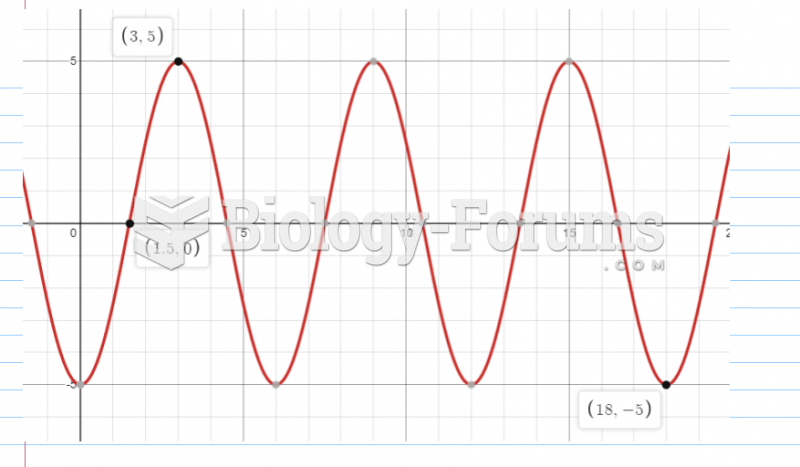|
|
|
Multiple experimental evidences have confirmed that at the molecular level, cancer is caused by lesions in cellular DNA.
The first documented use of surgical anesthesia in the United States was in Connecticut in 1844.
Chronic necrotizing aspergillosis has a slowly progressive process that, unlike invasive aspergillosis, does not spread to other organ systems or the blood vessels. It most often affects middle-aged and elderly individuals, spreading to surrounding tissue in the lungs. The disease often does not respond to conventionally successful treatments, and requires individualized therapies in order to keep it from becoming life-threatening.
Everyone has one nostril that is larger than the other.
Thyroid conditions cause a higher risk of fibromyalgia and chronic fatigue syndrome.







